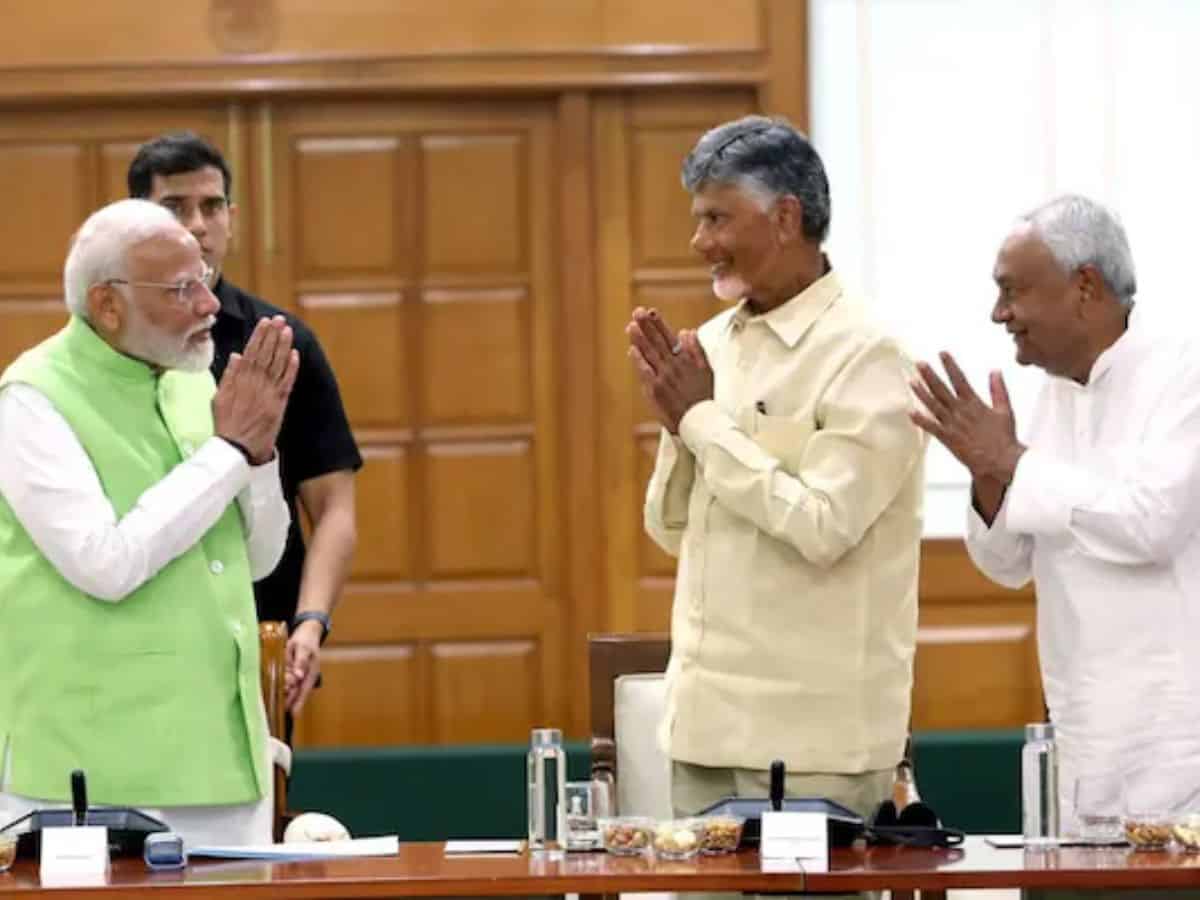
The Bharatiya Janata Party (BJP) won 240 seats on its own and 293 along with its allies. Twenty-eight of the 53 allies’ seats belong to Janata Dal (United) led by Nitish Kumar and the Telugu Desam Party (TDP) led by Chandrababu Naidu.
Naidu and Nitish emerged kingmakers after the Lok Sabha polls results were announced. Narendra Modi-led BJP, having fallen short of the majority mark, needs their support to form government at the Centre.
On June 9, Prime Minister Modi along with 71 MPs, including those from TDP and JD(U), took oath at Rashtrapathi Bhavan, New Delhi.
BJP has realised that it needs to maintain a balance between party members and alliances, mainly with the TDP and JD (U).
According to certain media reports, both TDP and JD(U) are eyeing the Lok Sabha Speaker’s position. However, BJP sources have maintained that the party is reluctant to hand over the post.
Previous Speakers
Om Birla was the Speaker in the last Lok Sabha. A speaker’s role in the House ought to be non-partisan and it doesn’t represent a political party when on the seat. It is a well-known fact that Congress veteran leader N Sanjiva Reddy resigned from Congress after taking the Speaker’s position. However, not all Speakers have done that. Many, like PA Sangma, Somnath Chatterjee, and Meira Kumar, have remained in the party and have acted as Lok Sabha Speakers. In fact, in 2008, Somnath Chatterjee was expelled from CPI (M) after his strict non-partial ways.
How is Lok Sabha Speaker elected?
Lok Sabha Speaker is elected by the members of the house. The Speaker is elected by a simple majority. A pro-term Speaker appointed by the President registers the oath of office to new MPs.
Why is Speaker’s post important?
Over the past few years, the rate of defection within political parties has risen, leading to party split or the toppling of governments. In such cases, anti-defection law comes into play which puts the Speaker into a powerful position.
According to the anti-defection law, the Chairman or the Speaker of the House has absolute power in deciding the cases pertaining to the disqualification of members on the grounds of defection.
BJP is infamous for having ‘horse trading’ of lawmakers. Recent examples include the split of Sharad Pawar-NCP and Uddhav Thackeray’s Shiv Sena in Maharashtra. In fact, Nitish has in the past accused the saffron party of sowing discord among its partymen in Bihar.
